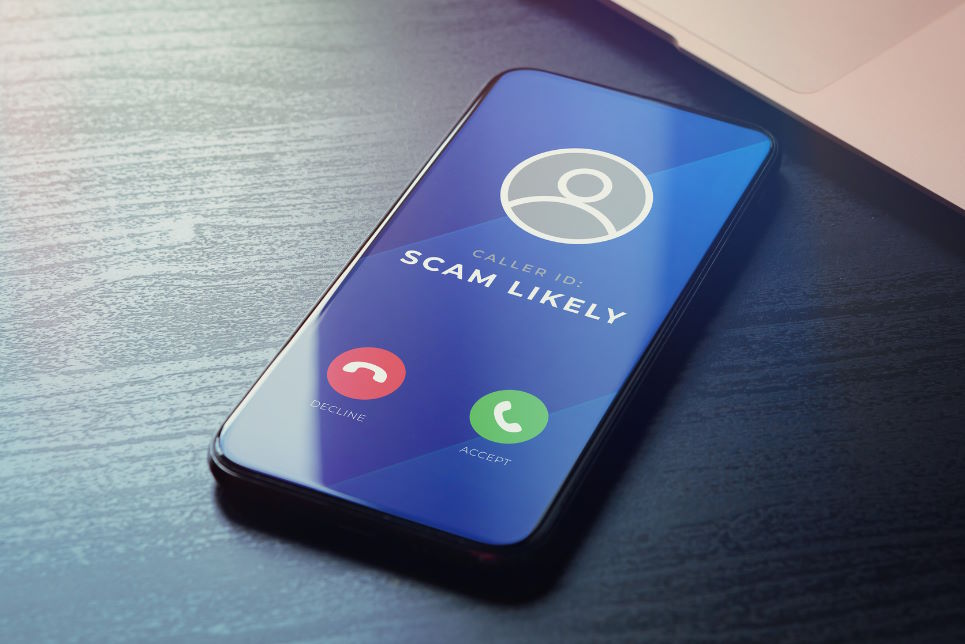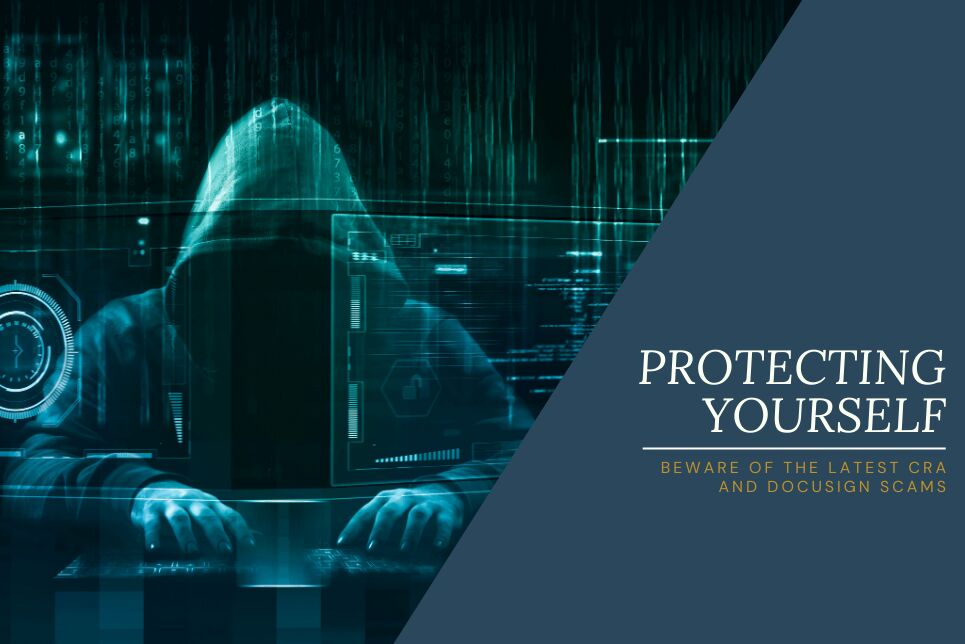Protecting Yourself: Beware of the Latest CRA and DocuSign Scams
A scam is a fraudulent or deceptive act or scheme that is designed to trick or cheat someone out of their money, personal information, or other valuable assets. Scams can take many forms, such as fraudulent emails, phone calls or text messages and are often carried out by individuals or groups with the intention of taking advantage of unsuspecting victims. The goal of a scam is to extract something of value from the victim through deceit or misrepresentation. Unfortunately, scammers are always coming up with new tactics to take advantage of people. It is important to be aware of common scams and to stay vigilant to avoid becoming a victim. This article will discuss the latest CRA and DocuSign scams going around.
CRA Scams
CRA scams, or scams perpetrated by individuals posing as representatives of the Canada Revenue Agency (CRA), have been on the rise in recent years. These scams can take many forms, but they all have one thing in common: they aim to trick people into giving up their personal information or money.

1. Someone claiming to be a CRA representative by phone
One common type of CRA scam involves a phone call from someone claiming to be a CRA representative. The caller may tell the recipient that they owe money to the CRA and threaten them with legal action or arrest if they do not pay immediately. The caller may also ask for personal information such as social insurance numbers, dates of birth, or banking information.
It is important to remember that the CRA will never ask for payment over the phone or by email and will never threaten legal action or arrest. If you receive a call like this, it is likely a scam and you should hang up immediately.
2. Email or texts that appear to be from the CRA
Another type of CRA scam involves emails or text messages that appear to be from the CRA. These extremely legitimate-looking yet fraudulent messages can include unclaimed money notifications, locked CRA account warnings, or demands for payment. Scammers will use emails and texts to trick people into sharing personal information, such as passwords, credit card numbers, or social insurance numbers. They may also use emails and text messages to lure people into clicking on malicious links or downloading malware onto their devices.
The CRA will not use text to start a conversation with you, so you can disregard these messages. If you receive an email notification from the CRA, there should not be a link or download attachments in that email. It is advisable to sign into your CRA account directly (and not through a link) to view the email.
DocuSign Scams
DocuSign scams are becoming increasingly common as more people are using electronic signature services for signing documents online. DocuSign is a popular electronic signature service that allows individuals and businesses to sign and send documents electronically, and it is often used for legal and business documents.
Unfortunately, scammers have found ways to exploit the popularity of DocuSign to trick people into giving up their personal information or money. Here are some common DocuSign scams to watch out for:
1. Phishing Emails
Scammers will send emails that appear to be from DocuSign, asking the recipient to sign a document or click on a link. The link may take the recipient to a fake website that looks like DocuSign but is designed to steal their personal information or login credentials.
It’s essential to check the sender’s email address. Has it been sent from a member of the Alitis Team with an @alitis.ca email address? Were you expecting any documents to be sent electronically to you? If you are unsure, please call us at 1-800-667-2554 or email admin @ alitis.ca to verify the legitimacy of the documents.
2. Fake Documents
Scammers may create fake documents that look like they were sent from DocuSign, asking the recipient to sign the document and send it back. However, the document may contain a virus or malware that can infect the recipient’s computer or steal their personal information.
To avoid this scam, be cautious of any unexpected documents sent to you. Verify the sender and the document content before signing or sending anything back.
3. Payment Scams
Scammers may send fake invoices or payment requests that appear to be from DocuSign, asking the recipient to pay a fee to sign or view a document.
Please note that Alitis will never charge you to sign documents through DocuSign.
Summary
Scams are, unfortunately, common in Canada, and they come in many different forms. We’ve only discussed two of them in this article. Protecting yourself from scams requires staying informed, being cautious of unsolicited offers, protecting your personal information, watching out for phishing scams, verifying senders, and educating yourself on common scams. By taking these steps, you can reduce your risk of falling victim to a scam.
Our Team at Alitis
Our dedicated team at Alitis has over 250 years of collective industry experience. But what makes us unique is the high level of integrity that every team member brings to the table.
Along with experience and integrity, each team member at Alitis shares the same commitment to our clients. At the end of the day, we measure our success based on the success of you reaching your financial goals.
If you’re interested in investing with Alitis, let’s have a conversation:


